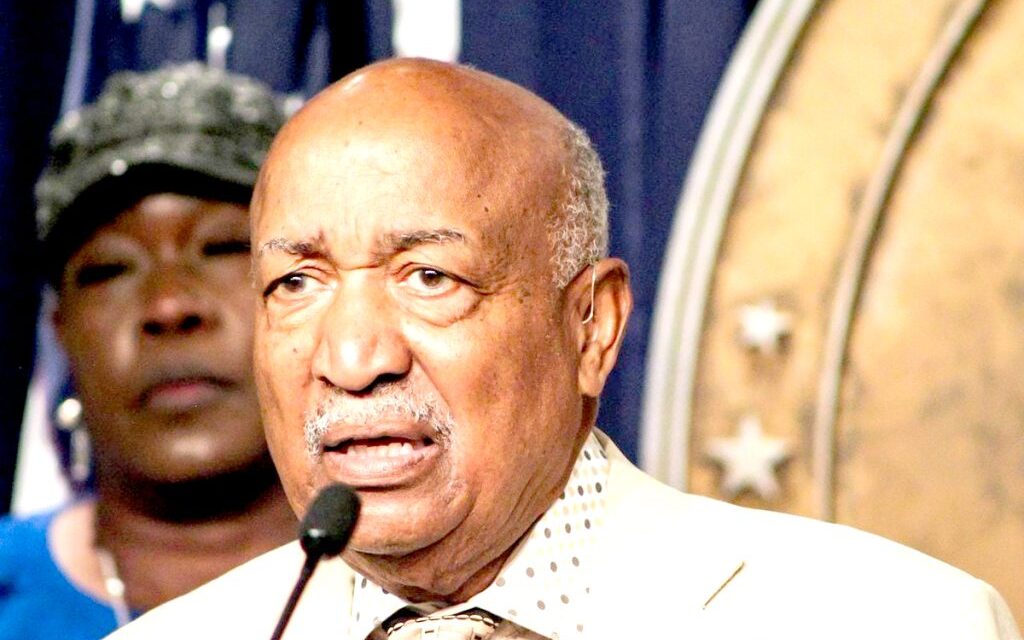By Alander Rocha & Alabama Reflector
The Alabama Democratic Party’s vice-chair for minority affairs accused President Joe Biden’s re-election campaign of “handpicking personal Delegates” in a letter sent earlier this month.
Joe Reed, who also serves as the director of the Alabama Democratic Conference, a mostly-Black organization, accused the campaign of setting a goal of “[reducing] Black voter influence on Election Day,” and suggested legal action could follow.
“I wish to impress upon you that your attempt to eliminate seventy-four dedicated, loyal, and loving Democratic Delegates pledged to the Biden/Harris nomination at the Democratic National Convention is totally unacceptable and, in all due respect, will be resisted in every possible way, including going into federal court,” Reed wrote in the Jan. 10 letter, obtained by the Alabama Reflector.
Reed wrote that the move was “an insult to Black voters in Alabama.”
In a phone interview Friday morning, Reed said he doesn’t believe this is coming from Biden or Vice President Kamala Harris, but a “rat.”
“I got my own ideas,” he said. “But I don’t know enough about it. But I smell a rat.”
The delegate selection plan that the state party last year approved and submitted to the National Democratic Committee instructed Alabama Democratic Party chair Randy Kelley to provide a list of delegates committed to voting for Biden at the Democratic National Convention next year. The state party met Dec. 2, 2023, submitting 108 party members to Biden’s campaign.
The Biden campaign picked 34 members for district level candidates. Since Alabama’s party delegate system is broken into two phases, more delegates — public and elected officials and other party members — will be selected by the presidential campaign in late May, for a total of 59 delegates.
Kelley also submitted Biden’s campaign delegate selection to the Alabama Secretary of State, which was received on Dec. 20, and finalized the first phase of the delegation selection process.
Biden and U.S. Rep. Dean Phillips, D-Minnesota, will be on the Alabama primary ballot on March 5.
Reed claims that the campaign discriminated against Democratic Black voters when they picked 19 Black district level delegates out of 34. The Biden campaign has a chance to reach the diversity goal of 61% Black delegates, for a total of 36 candidates, in the second phase.
“There were 74 people scratched. They were Biden delegates. They’re supposed to be elected by the people in the seven congressional districts of Alabama. These folks are being appointed indirectly,” he said.
The state party could have appealed the Biden campaign’s choices to the DNC by Dec. 9. A request for comment was left with the DNC on Friday.
It’s unclear why the Biden campaign picked 34 delegates to run for 34 spots, but the campaign maintained it was following Alabama’s Democratic party rules.
“The campaign followed and complied with the DNC and Alabama Democratic Party rules as outlined in their Delegate Selection Plan. We’re proud of the diverse slate of delegates we have put forward and look forward to continuing to work with Democrats in Alabama to support President Biden’s reelection,” Daniel Wessel, a spokesperson for Biden’s reelection campaign said in a statement.
Under the Alabama Delegation Plan, the campaign is acting within the rules issued by the state party. According to the delegate selection rules, the candidate “…may approve a number of delegate candidates or alternate candidates equal to or greater than the number of delegates or alternates allocated to the district.”
In 2008, Barack Obama, who had won the Alabama Democratic presidential primary, dropped 18 delegates to the national convention, which allowed him to pick the remaining delegates in the second round delegate elections.
Kelley said delegates not picked by the campaign are being “robbed” of the opportunity to serve as delegates, but he didn’t wholly blame the Biden campaign. He said the people were robbed by “some internal forces in the party.”
“I think it was some shenanigans going on behind the scenes, and I’m not going to share too much information at this time. But I think that’s basically what was happening,” he said.
The Alabama Democratic Party has been in conflict with the DNC since May, when party officials, led by Reed and Kelley, passed new bylaws eliminating diversity caucuses.
After the May meeting, which many claim was not administered according to the bylaws, members of the affected caucuses, some of whom are Black, sharply criticized the moves, saying they stripped key groups of representation. Another complaint came over a $50 qualifying fee charged by party officials to enter the meeting, which several State Democratic Executive Committee members said they had not been informed about previously and which some called a poll tax.
The party must have new bylaws in place by Feb. 1.
In Reed’s letter, he states that “Whoever persuaded [the campaign] to eliminate seventy-four pledged Biden-Harris delegates … is playing a dangerous game. You never consulted or informed the State Chair of your ‘plot.’ This is unconscionable and unpardonable.”
Despite the threat of legal action, Reed said Friday that he thinks the issue can be resolved internally.
“The bottom line is it can be fixed and they’ll have to fix it,” Reed said.











